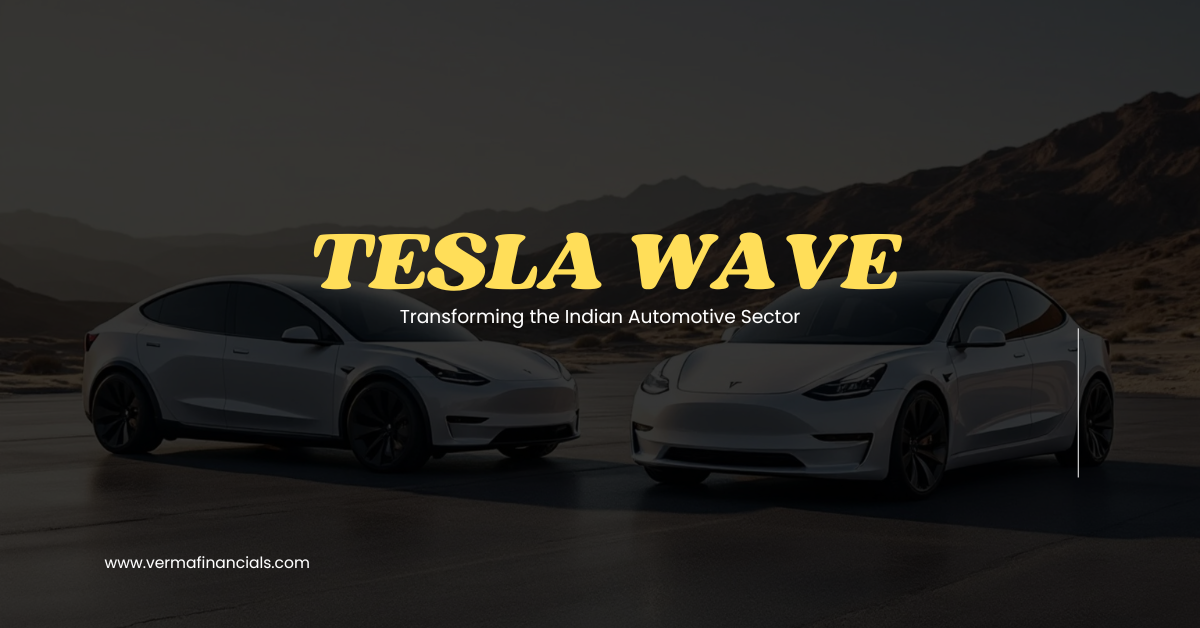
The Indian Government has recently introduced EV-friendly policies, including reducing import duties on electric vehicles, to attract global carmakers like Tesla. In response, Tesla plans to enter the Indian market in 2025, with the Model 3 and Model Y expected to launch in the second half of the year. Showrooms are rumored to open as early as April in prime locations like New Delhi’s Aerocity and Mumbai’s Bandra Kurla Complex (BKC). Tesla’s bold move has sent shockwaves through the Indian automotive sector, igniting both excitement and debate. How will this Tesla Wave transform the future of the Indian automotive industry? Let’s explore what’s driving this transformation.
Why Are Indian Car Companies Concerned?
You might wonder why Indian carmakers would be worried about Tesla? Here’s why: Recent discussions about lowering trade barriers for electric cars have investors feeling uneasy. This nervousness caused a drop in the stock prices of key players like Tata Motors, Mahindra & Mahindra, Maruti and Hyundai etc. The fear is that Tesla’s cutting-edge technology and premium branding could lure away customers, even though its cars come with a hefty price tag.
Adding fuel to the fire is a past critique from former US President Donald Trump. He had openly criticized India’s high import taxes on American cars, arguing it created an unfair playing field. A video of his remarks even caused ripples in the market, impacting stocks like Mahindra & Mahindra. The message was clear: trade policies could influence how companies compete in global and local markets.
How Big of an Impact Could Tesla Wave Make?
Experts have mixed opinions on Tesla’s potential impact. One key issue is price. Tesla’s most affordable car in the US costs over ₹30 lakh. In contrast, most electric car buyers in India are looking for vehicles in the ₹10-20 lakh range. This means Tesla’s vehicles might appeal only to a niche audience of affluent buyers who prioritize luxury and advanced technology.
Think of it like shopping for a smartphone. With most options costing around ₹15,000, a model priced at ₹50,000, regardless of its features, will likely attract very few buyers.
Meanwhile, Indian companies like Tata Motors and Mahindra & Mahindra are already meeting the needs of the average Indian family with affordable and reliable EVs. They design cars for India’s crowded streets, prioritize value for money, and understand what their customers need. Analysts at CLSA (Credit Lyonnais Securities Asia) believe these factors will help Indian brands maintain their dominance, even as Tesla enters the market.
What Does This Mean for Indian Consumers?
For the average Indian car buyer, Tesla’s arrival could be an exciting development. It might push local manufacturers to innovate further, creating more advanced electric vehicles. Increased competition often leads to better choices and, over time, potentially lower prices.
Tesla’s presence could also boost awareness about electric vehicles in general, aligning with the government’s goals to encourage greener transportation. However, for Tesla to truly thrive in India, it would need to make its cars more affordable. Building vehicles locally could be one way to achieve this, helping the company avoid high import taxes.
Looking Ahead
It’s too early to predict the full extent of Tesla’s influence on India’s automotive industry. The market is vast and diverse, with unique challenges and opportunities. Success will hinge on how well Tesla adapts to Indian buyers’ preferences and budgets.
For now, one thing is clear: the entry of a global giant like Tesla could steer India’s automotive industry into an exciting new phase. Whether it’s through healthier competition, more innovation, or increased awareness of electric vehicles, the journey ahead promises to be one worth watching.
A Unique Investment Opportunity
The current buzz surrounding Tesla has also created a golden investment opportunity in India’s automotive sector. Stocks like Tata Motors, Maruti Suzuki, and Mahindra & Mahindra are currently trading at discounted prices, making this an excellent time to invest. These companies, with their strong foothold in the market, are well-positioned to benefit from the growing EV landscape and compete effectively with global players like Tesla.
The best way to invest in these promising stocks is through mutual funds, which provide professional management and diversification. Additionally, mutual fund SIP allow you to benefit from rupee cost averaging, which reduces the impact of market volatility by spreading investments over time. If you’re interested in seizing this opportunity, click the button below to start your investment journey today.
Also read, Market Correction: A 18.5% Discount You Shouldn’t Miss!





No responses yet